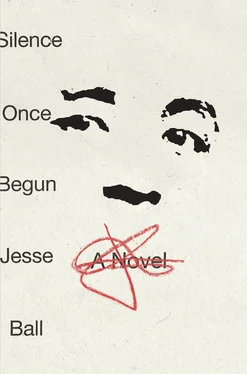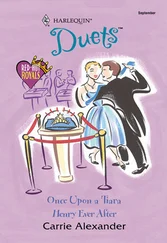In searching for a way out of my own troubles, I had found my way into the troubles of others, some long gone, and now I was trying to find my way back out, through their troubles, as if we human beings can ever learn from one another. To simply find out what had happened to Oda Sotatsu, that was the main thing. That was always the main thing. But if in learning that, I could see somehow farther …
Finally, after two weeks, I went back to Joo’s apartment. Somehow, I expected that she would not be there, but she was. The first thing I noticed inside the building was that my letter was no longer in the box. So, she has read it, I thought. I went up the stairs. When she opened the door, she was holding the paper in her hand.
Come in, she said.
Her face was gentler than it had been. I don’t know if I had won her over, or what. Her face was gentler, but in a way its gentleness revealed still further the difficulties that her life had put on her. She had the severity of a person who has lived in the out of doors, beneath a constant sun — the look of a field laborer or an Appalachian musician. I have always been partial to such faces, have always thought it would be fine to have such a face for myself. It seems there is a great deal of suffering prior to obtaining one. I thought of none of this then. What I thought then was, she is holding my letter. I was desperate to hear what she would say, about my situation, about Oda Sotatsu, about Kakuzo. Here she was: suddenly I was much closer to writing the book I longed to write, to discovering the material that would make possible the telling of the proper story.
But, the first thing she did was to go to the window and sit down. She gestured that I should do the same.
Let’s not talk for a while, she said.
We sat there for a while. Through the floor, I could hear the sound of the apartment below. The sun set on some other part of the building. In Joo’s apartment it became steadily darker until she was finally forced to turn on the light or leave us sitting together in darkness.
I watched her face in the light and tried to see the girl who had visited Sotatsu, who had lived with Kakuzo. After a time, I felt I could see her. She looked at me and said:
I don’t think anyone has looked at me for that long in many years. This is a thing that regular people don’t understand. Because they live in families or groups, because they do not live alone, unmet, they do not know what it is like to be alone. Months can go by without anyone looking at you, years, without anyone so much as touching your hand or shoulder. One becomes almost like a deer, impatient to be touched, terrified of it. A momentary contact in a supermarket, or on a train, becomes bewildering. However often such contact comes it is always bewildering, because it isn’t meant. And then there comes the day when no one so much as looks at you, unless it is by accident.
She clasped her hands.
I work in the next street, at a machine company. I am a secretary. There are two other secretaries beneath me. Someone tells me what to do. I tell them what to do. It is all so simple that none of that is really necessary. I eat my lunch by myself and when work is done, I come home and sit and eat my supper alone. Sometimes I walk by the harbor and look at the ships. When you say these names to me, Oda Sotatsu, Sato Kakuzo, when you say to me this name, Jito Joo, I feel so far away. You tell me of your own life and I am sorry. You have been hurt. So have I. It isn’t done. It will keep going on. I know it. But, I have read your letter. I wrote you one of my own and now you can have it. I threw it out two days ago, but then I got it back. Here it is.
She held it out to me.
I think I would like for you to go now. I wish I knew what to say to you.
She stood up. So did I.
I went to the door and she opened it.
Anything I could ever tell you, or anyone else, is in there. Goodbye.
2.1. The Testimony of Jito Joo
When I got home, I opened the letter that Jito Joo had given me. I read it straight through twice, set it down, got up to leave the house, thought better of it, returned to my chair and read it again.
I present it to you now in its entirety.
I believe in discovering the love that exists and then trying to understand it. Not to invent a love and try to make it exist, but to find what does exist, and then to see what it is. I believe in trying to understand such love through other loves, other loves that have existed before. Many people have made the records of these loves. These records can be found. They can be read. Some are songs. Some are just photographs. Most are stories. I have always sought after love, and longed for it. I have looked for all the kinds that may be. I am writing to you now to talk about Oda Sotatsu, who is a person I loved, and who loved me. Although I know there are others who will say things about Oda Sotatsu, who may say things about me, who may know about this situation, although they are few, perhaps there are some who can speak about these things, yet what I know is what I felt and what I saw. I am not writing this for any comparison or for any other sort of understanding, but as a record of love, for use by those who love and who hope to love. I am not nimble and I cannot hide things well. I will write what I felt and how. You may see how I do.
I met Oda Sotatsu with another man, a man I was seeing, Kakuzo. It was a strange time, not a good time. I knew Oda Sotatsu hardly at all, although we grew up in the same area. I had not met him until just before he was put into prison. We had exchanged some words. The man I knew, Sotatsu, existed in his situation, as a person with no freedom. That is why I became his freedom. Others who were his family came and went and made noise. They were visiting or they were prevented. For me there were no obstacles. I do not know why that was. It seems to me that there should have been, that it was never so easy for a person to do what I did, to see a person as often, or for as many times. Why it is, as I say, I don’t know. But we were lucky in that. I was Oda Sotatsu’s constant visitor, and whoever the guards were, wherever they were, I was admitted, sometimes as his sister, sometimes as a girl he knew. I was always admitted. I was never turned away, not once. There are things in life that happen like this — I can tell you that because I was there.
I was with him that night, of course. It was I who brought the confession to the police. I had a lovely green envelope. The paper was so crisp! Crisp green paper folded and secured with a string. Inside it, Kakuzo had put the confession. We were there in the night, awake, Kakuzo and I. We had parted with Sotatsu at the bar, and now we were at home. Neither of us could sleep. He was sitting there in the dark holding the confession in its envelope. There was no clock. We just sat, watching the window. Sometime after dawn, he handed it to me. He said, Joo, take it now . I put on my coat, went to the door, put on my shoes, and went down the stairs. Outside, it was a very bright day. I was so full of it — I felt like the hinge of some long thing. I was turning a door in the distance. A door was turning upon me, and it was all effortless. All that weight, but I could support it. I took the confession to the station. I knocked on the door. The officer was asleep at his desk. He woke up and came over rubbing his eyes. Here is a delivery, I said. Here you go.
They didn’t know what it was, so who I was, I guess, was meaningless. I went away and next I knew Sotatsu had been taken. He was in jail. He was the Narito Disappearer. Suddenly. I sat all day in the house and when it was nighttime, Kakuzo and I went and found something to eat. Will it work? Will it work? Kakuzo kept saying. There was a radio on in the restaurant. That’s how we heard the news.
Читать дальше












